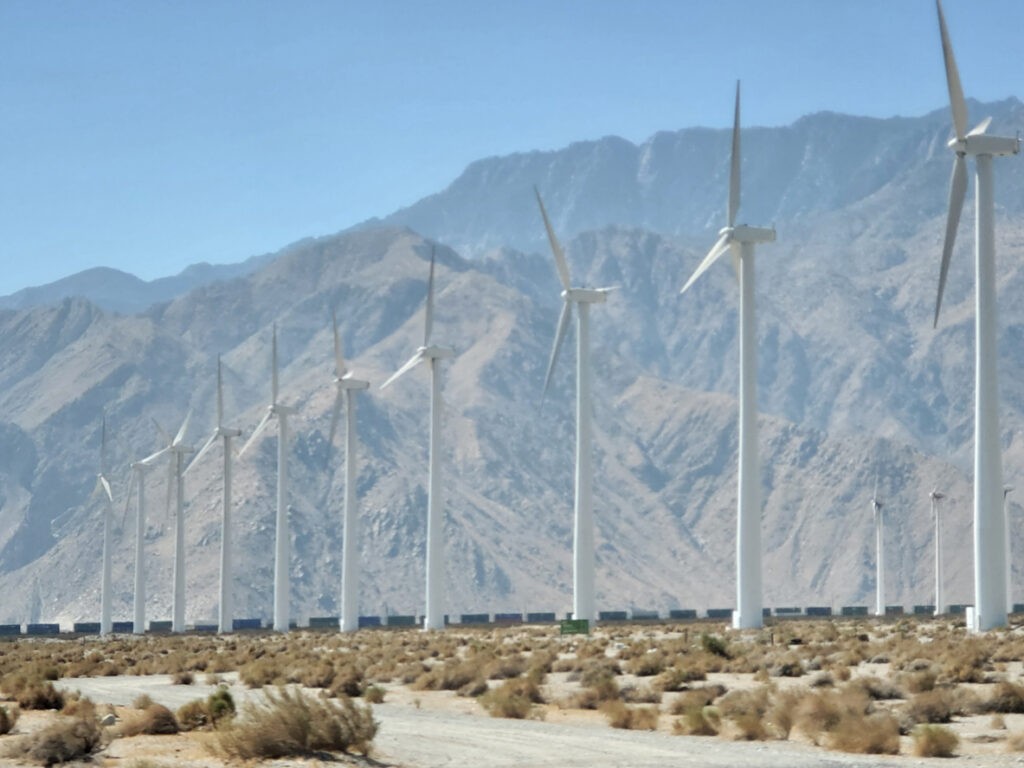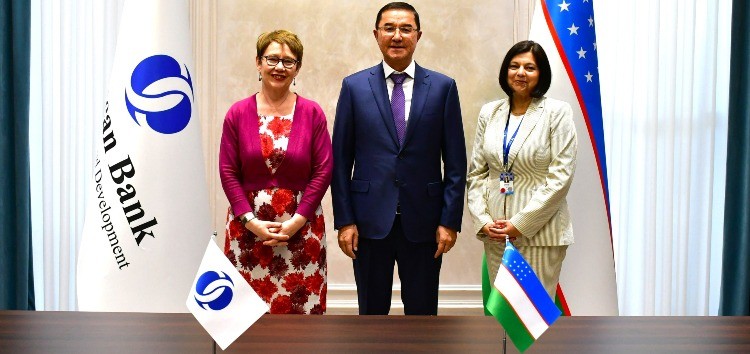Viewing results 1 - 6 of 1334
Saudi and Emirati companies are to invest $7 billion in the construction of two windfarms in the Kungrad district of Uzbekistan's autonomous Karakalpakstan republic. The announcement followed the signing of two contracts during the third Tashkent Investment Forum. The commission of the facilities will save almost 7 billion cubic meters of natural gas and prevent the emission of more than 2 billion tons of harmful gases into the atmosphere. Welcoming the initiative, the Uzbek Energy Ministry said, "Saudi company ACWA Power is implementing a megaproject to build a wind farm with a total capacity of 5 gigawatts in the Kungrad district of Karakalpakstan. The project is estimated at $6.2 billion. The station will generate 17.5 billion kilowatt-hours of electricity per year. A wind power plant with a total capacity of 1 gigawatt and a cost of $1.1 billion will be built in the same area by Amea Power from the UAE. It will generate 3.5 billion kilowatt-hours of electricity a year," . During the third Tashkent International Investment Forum, agreements signed by several government and private-sector counterparties, totalled $26.6 billion .
On May 2, Uzbek President Shavkat Mirziyoyev welcomed representatives of several countries to the Tashkent International Investment Forum. In discussion with the Speaker of the Parliament of Singapore, Sia Kian Peng, the two sides focused on cooperation in personnel training, investment, tourism and public safety, and emphasized the importance of joint, effective parliamentary control over their bilateral high-level agreements. During negotiations between Mirziyoyev and the Chairman of the Cabinet of Ministers of Kyrgyzstan Aqilbek Japarov, the two leaders concentrated on deepening strategic partnership between Uzbekistan and Kyrgyzstan, expansion of cooperation in various trade sectors such as industrial, energy, transport and logistics, and marshalling interregional relations and cultural-humanitarian exchange. Special attention was paid to practical issues relating to the Kambarata HPP-1 (hydropower plant) and China-Kyrgyzstan-Uzbekistan railway projects. A delegation led by Prince Abdulaziz bin Salman Al-Saud, Minister of Energy of Saudi Arabia, used the opportunity to discuss the further expansion of practical cooperation, and the implementation of priority investment projects in Uzbekistan. The high level of bilateral trade and investment partnerships already achieved was noted. The portfolio of joint projects currently exceeds $30 billion, with Saudi Arabia's ACWA serving as a keen investor in Uzbek wind power generation. According to data provided by the Uzbek Government, agreements to implement projects worth $18 billion in the fields of green energy, infrastructure, healthcare and pharmaceuticals are set to be signed within the framework of the Tashkent International Investment Forum.
Turkmenistan has completely overtaken Uzbekistan in the market for greenhouse tomatoes in Tajikistan, according to a report by the EastFruit agricultural news portal. Analysis revealed that Turkmen tomatoes are winning due to competitive pricing and also, their attractive appearance and modern packaging. Despite problems related to the cultivation of tomatoes grown in Tajikistan's greenhouses this season, the price has remained at a record low for this time of the year. The average wholesale price for one kg is currently just $1.46 -- and further price reductions are expected in the near future, notes EastFruit. In Tajikistan, which currently imports the majority of greenhouse tomatoes it consumes, the wholesale price is significantly lower ($1.9 per kg) than in Uzbekistan, which is still the main regional exporter. The EastFruit portal notes that today, greenhouse tomato prices in Central Asian countries are not much lower than in Eastern European countries. It also reports that further development of energy-efficient greenhouse technologies will allow countries with colder climates to remain relatively highly competitive and moreover, local consumers are generally willing to pay more for the fresh taste of greenhouse-grown vegetables.
Kyrgyzstan's national payment system, Elkart, and Uzbekistan's Humo payments platform intend to launch a project on mutually acquiring, or guaranteeing payment security and authorizations according to Kyrgyzstan's Interbank Processing Center (IPC). The agreement was reached at a meeting in Tashkent. "We are going to develop payment systems and create an ecosystem in our countries. This project will open new horizons for the development of not only financial infrastructures of Kyrgyzstan and Uzbekistan, but will also give impetus to the development of many spheres of activity of the two states," said Kanykei Zhamangulova, Chair of the Board of the Kyrgyz IPC. Payment organizations of the two countries have been negotiating a mutual acquiring framework since last summer. At the last meeting in Bishkek, the parties agreed on money transfers and internet payments. "An agreement was reached to start a joint project for step-by-step realization of the set goals and mutual exchange of experience in acquiring, issuing and combating fraudulent transactions," Shukhratbek Kurbanov, director of the Humo payment system, said at the time. Citizens of Uzbekistan and Kyrgyzstan will be able to pay with their cards in the other of the two countries without additional commissions, he said. However, the exact launch date of mutual acquiring services wasn't announced. The cross-border payments plan is advancing as relations between Bishkek and Tashkent were further warmed by the demarcation of the two states' international border. This key step put an end to decades of border disputes that had persisted since the end of the Soviet period.
In 2025, Uzbekistan, with the support of the World Bank, will participate in the Programme for International Student Assessment (PISA) administered by the Organization for Economic Cooperation and Development (OECD), with pilot testing starting this May. PISA testing assesses the ability of students from more than 80 countries in their knowledge and skills in reading, math and science. When allocating funding for PISA testing in 2019, World Bank experts noted the acute shortage of teachers and their low qualifications and in addition, the absence of means to assess both the quality of preschool education and a comfortable environment for learning. "Investing in children's early education is one of the most effective ways to develop human capital, which in turn will stimulate economic growth in the country," Hideki Mori, the head of the World Bank's representative office in Uzbekistan, said at the time. Last year's test results placed Uzbek schoolchildren in the bottom ten of the 80 participant countries. The cause indicated significant problems within the domestic education system and subsequent data revealed a direct correlation between test results and families' socioeconomic status. To address the issue, officials plan to allocate more than $3.7 billion for schools and school education curricula this year.
On 2 May, the European Bank for Reconstruction and Development (EBRD) announced the allocation of a loan of up to $238 million (€224 million) towards the renovation of around 81 km of the 4R156 road, as well as the construction of a bridge across the Amu Darya River in the Khorezm region of western Uzbekistan. The road is a strategically important section of the Central Asia Regional Economic Cooperation Corridor 2a, linking the region’s administrative centre, Urgench, with the A380 road to Kazakhstan. The loan will transform the current single-carriageway category-II road into a dual-carriageway category-I road, and in addition, help upgrade supporting infrastructure along the 4R156 road. Once completed, the new road with its much-improved throughput capacity, will stimulate both trade and tourism in Khorezm. EBRD President Odile Renaud-Basso commented: “We are supporting this project because it meets our strategic objectives for Uzbekistan and Central Asia. It is also part of the global transport and logistics infrastructure solutions covered by the European Union’s (EU) Global Gateway initiative.” In January 2024, at the Investors Forum for EU-Central Asia Transport Connectivity in Brussels, the EBRD expressed its readiness to invest around €1.5 billion in Trans-Caspian Corridor-related infrastructure and associated transport solutions over the next 2-3 years.






